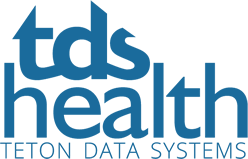Health Measurement Scales: A practical guide to their development and use

Description
Clinicians and those in health sciences are frequently called upon to measure subjective states such as attitudes, feelings, quality of life, educational achievement and aptitude, and learning style in their patients. This fifth edition of Health Measurement Scales enables these groups to both develop scales to measure non-tangible health outcomes, and better evaluate and differentiate between existing tools.
Health Measurement Scales is the ultimate guide to developing and validating measurement scales that are to be used in the health sciences. The book covers how the individual items are developed; various biases that can affect responses (e.g. social desirability, yea-saying, framing); various response options; how to select the best items in the set; how to combine them into a scale; and finally how to determine the reliability and validity of the scale. It concludes with a discussion of ethical issues that may be encountered, and guidelines for reporting the results of the scale development process. Appendices include a comprehensive guide to finding existing scales, and a brief introduction to exploratory and confirmatory factor analysis, making this book a must-read for any practitioner dealing with this kind of data.
Overview:
- • Topics presented in the order that scales are constructed
- • Assumes minimal knowledge of statistics
- • Written in a conversational tone
- • Readers can use these steps to construct their own scales
Doody's Reviews
Quotes, Reviews or Testimonials
"This is comparable to most research books, with similar content. It contains many statistical calculations to better explain the information presented. The authors justify this update by explaining that the changes are based on readers' comments on the previous edition. Similarly, the authors encourage readers of this edition to submit suggestions and feedback.
Appendix A, "Where to Find Tests," contains a wealth of information about available instruments."
-- Michalene King, PhD, RN, CNE (Robert Morris University) Doody's Review
"....the updated discussion of validity and the new section on G-theory will stand out as important references for readers. I have always kept a copy of the first edition of this book on my shelves. It is regularly loaned out (and never returned), so I have replaced copy after copy over the years. I look forward to replacing my old edition with this new, more fleshed out, more complete, and very up-to-date book. I will continue to use it in my classes."
-- James Torner, PhD, MS (University of Iowa College of Public Health) - Doody's Revew prior edition
Audience
Although the target audience is health researchers, the book is appropriate not just for researchers, but also for graduate students. The authors are well regarded and their book is a staple on the bookshelves of many researchers interested in measurement of subjective states, attitudes, etc.












